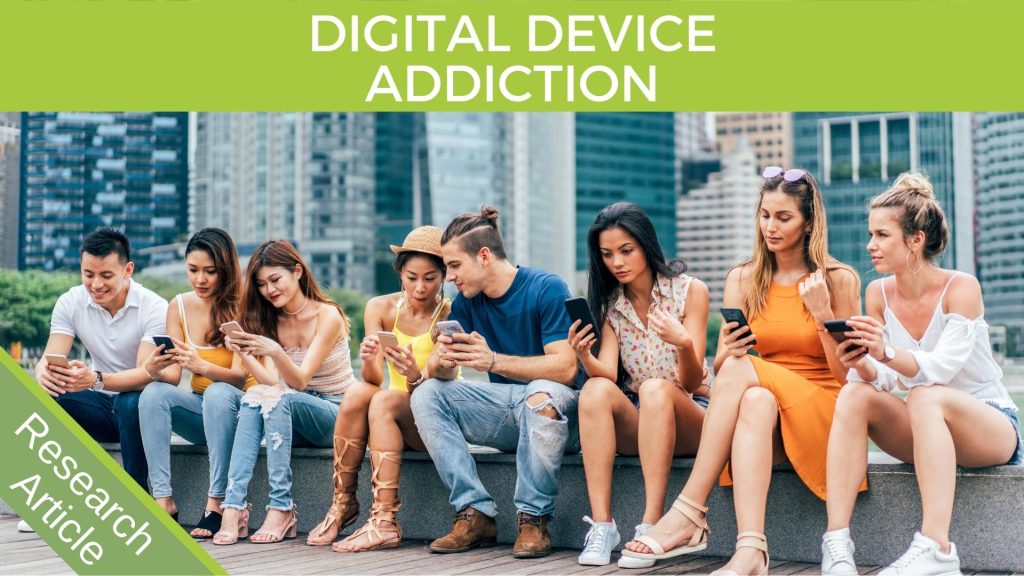- 2 years ago
- 4Minutes
- 818Words
- 541Views
Does virtual reality threaten actual reality?
(1) Cell Phone Dependence — a new diagnostic entity. http://medind.nic.in/daa/t08/i2/daat08i2p123.pdf
(2) Symptoms of Video Game Addiction in Teens. http://www.video-game-addiction.org/symptoms-computer-addiction-teens.html
(3) Web junkie. PUBMED https://www.ncbi.nlm.nih.gov/nlmcatalog/101662426
(4) Overpowered : what science tells us about the dangers of cell phones and other wifi-age devices. PUBMED https://www.ncbi.nlm.nih.gov/nlmcatalog/101636316
Will it potentially suck the very life out of us leaving nothing but millions of human remains sitting at their desks or with mobile phones in hand or wearing virtual headsets?
Will the internet become self-aware when it realizes it can take over the world, by controlling our minds?
These might seem like silly questions but what about the facts?
We are becoming addicted in growing numbers.
Maybe it’s time for a digital detox.
Apart from the addictive behavior there’s the radiation to consider. We’ve all heard whispers that these devices can give you brain cancer. Could it be true? In 2011, the World Health Organization shocked the international community by confirming that the radiation from cell phones is a possible carcinogen to humans. (4)
Mobile Phone Addiction
Mobile or cell phone addiction appears to be a recent common disorder that merits inclusion in new classificatory systems. (1)
At least 4 of the following signs and symptoms are thought to comprise criteria for digital device addiction and the problematic cell phone overuse must cause significant harm in the individual’s life. (1)
- A need to use the cell phone more and more often in order to achieve the same desired effect.
- Persistent failed attempts to use cell phones less often.
- Preoccupation with smartphone use.
- Turns to the cell phone when experiencing unwanted feelings such as anxiety or depression.
- Excessive use is characterized by a loss of sense of time.
- Has put a relationship or job at risk due to excessive cell phone use.
- Tolerance.
- Need for the newest cell phone, more applications, or increased use.
Withdrawal, when cell phone or network is unreachable.
- Anger
- Tension
- Depression
- Irritability
- Restlessness
Internet Porn or Online Gaming Addiction
Internet addiction is a problem professed by the Chinese government to be the number one public health threat to young people. (3) Below are some of the symptoms of Internet addiction. (2)
- Preoccupation
- Downplaying Computer Use
- Lack of Control
- Loss of Time
- Negative Impact on Other Areas of Life
- Hiding From Negative or Uncomfortable Feelings or Situations
- Defensiveness
- Misuse of Money
- Mixed Feelings
As with any addiction, use of the “substance” – in this case, the video game or viewing of porn – initially causes euphoric feelings, but that euphoria is quickly followed by guilt. Guilt may be felt either over what the person is doing while online or simply the amount of time he is spending at the computer. (2)

Losing the real world
My concern is that this addiction may also weaken our senses. The “real world” is interacted with less and less. The person may lose their power to sense, feel, perceive and interact with the actual reality around them.
This means not only could the house burn down while we’re in virtual reality but our eyes, ears, and sense of awareness could be slowly eroded away, making us dysfunctional in the real world.
How many young people know how to change a car tire, cook a decent meal or grow a vegetable garden by the time they are adults? Simple practical tasks can’t be learned online.
Not only this but their general health and their subtle sixth sense, intuition, and spiritual growth are impaired.
Lastly, I would suggest that as humans, our attention span and concentration may dwindle as we expect more and more flashing, high-speed entertainment. The most important thing we could lose from this digital addiction is our ability to complete difficult lengthy tasks in the real world. Because real-world work requires actual sensory spatial awareness and practical problem-solving skills, online social media, gaming, and entertaiment side of these devices really offer very little of practical use in the real world.
We simply can’t think for ourselves without it.
Here lies the long-term problem.
Tool or toy
I suggest we remember that the computer, the phone, or other virtual device was invented as an educational, and powerful work tool, not purely a toy. Adults should be spending their time socializing in the real world to stay healthy, and children should be learning “real world” skills and developing physically.
In order to break the addiction, a digital Detox may be needed short-term.
Then you could try this combination long-term:
- Take up a sport or hobby that involves others
- Go on a health food diet or detox program
- Start doing more regular exercise
- Make digital activity mostly work-related and limit digital playtime to 1-2 hours a day
- Get outdoors as often as possible, every day if you can
- Learn Meditation or self-healing
“ADDAD – Attention Deficit – Device Addiction Disorder should not become a registered disease”
Let’s do a regular digital detox and stay healthy.
Many Blessings
Brett Elliott ©





